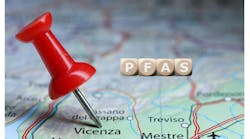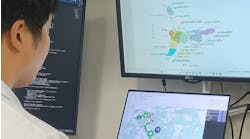My co-worker loves beer. So much so that he took a class to earn his Cicerone certification. A Cicerone is the beer world's version of a wine Sommelier. Part of this program involves training the nose to know when something is amiss, afoul or just plain gross. Any little change in the recipe can cause a good beer to go bad.
According to my co-worker, this off-flavor sensory class is only for strong-stomached souls not afraid of crying in front of complete strangers. Indeed, he told me the worst smell mimicked soiled baby diapers. The cause: Enteric bacteria infection. That's the type of information I could've gone on without knowing about and still lived a rich and fulfilling life. But now that I know, I can see the importance of having a designated sniffer.
Chemical engineers in South Korea have successfully created an artificial nose with a sense of smell comparable to a highly trained human expert’s nose.
The nose, called a nanobioelectronic nose (nbe-nose), was able to detect smells at concentrations of as low as 0.02 ppm – equivalent to human levels, according to a recent IChemE press release.
Harnessing the human sense of smell has a wide variety of current and potential benefits including health, security and environmental.
Currently, ‘artificial noses’ are used in laboratories and industry to monitor quality control and prevent problems such as contamination and spoilage. Other potential uses include the detection of lung cancer or other medical conditions; nasal implants to help warn of the presence of natural gas for people with a weak sense of smell; as a bomb detection method in airports; and the detection of dangerous and harmful bacteria such as MRSA (Methicillin-resistant Staphylococcus Aureus).
I wonder if the artificial nose can be trained to detect an enteric bacteria infection? And if so, I'm sure future Cicerones everywhere will be in line to buy one.


